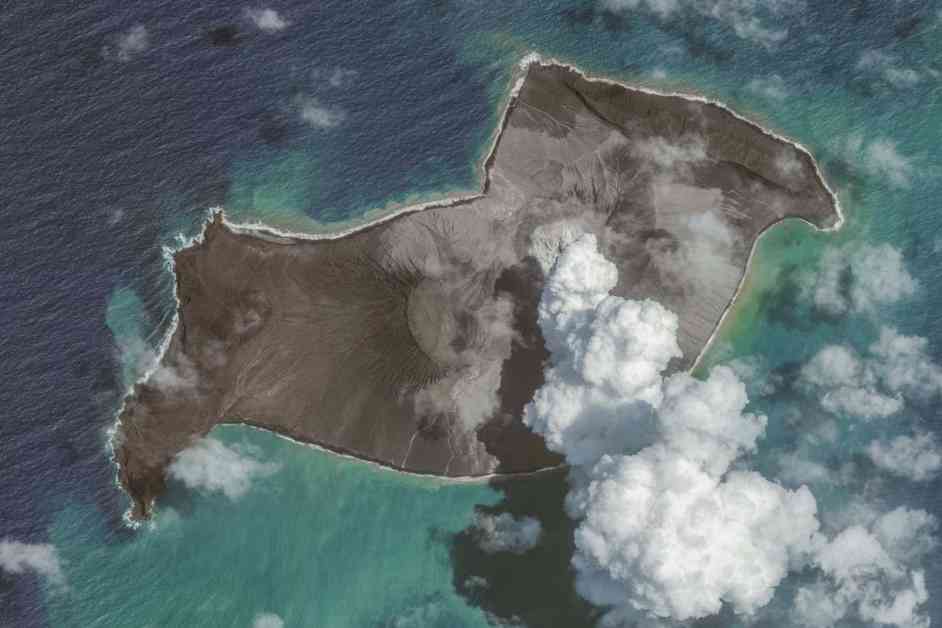The eruption of the Hunga Tonga-Hunga Ha’apai volcano in 2022 has had a significant impact on the Earth’s atmosphere. According to experts, millions of tonnes of water vapor were released into the air during the eruption and have remained there since then. This unprecedented event has led to record concentrations of water vapor in many parts of the atmosphere.
Christian von Savigny, a researcher at the University of Greifswald in Germany, described this event as “very special” and “unprecedented.” The South Pacific eruption was the first of its kind to occur in recent history, and its effects are still being felt.
The lingering water vapor in the atmosphere has raised concerns about its potential contribution to global warming. Water vapor is a greenhouse gas, and increased concentrations of it in the atmosphere can lead to higher temperatures on Earth. Scientists are closely monitoring the situation to better understand the long-term effects of this event.
In addition to the environmental impact, the eruption of the Hunga Tonga-Hunga Ha’apai volcano has also captured the interest of researchers and the public alike. The images and data collected during the eruption provide valuable insights into the Earth’s geology and natural processes.
Overall, the aftermath of the Tonga eruption serves as a reminder of the power and unpredictability of nature. It highlights the interconnectedness of Earth’s systems and the importance of studying and understanding these phenomena for the future of our planet. The scientific community will continue to analyze the data gathered from this event to learn more about its implications and how similar events may impact the Earth in the future.






